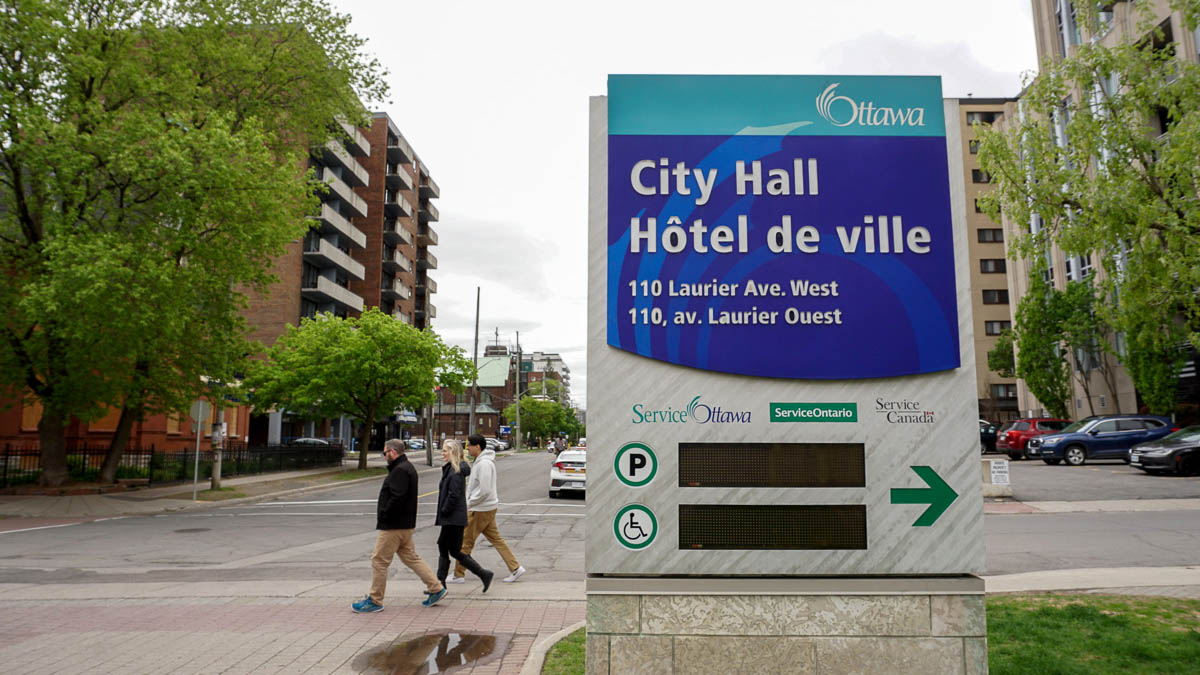Ottawa is temporarily cutting Community Benefit Charges (CBCs) for developers, lowering fees from four per cent to two per cent of land value and to one per cent for projects near major transit stations to accelerate housing construction.
The reduction is part of a five-year Housing Acceleration Plan, announced by Mayor Mark Sutcliffe, which aims to speed up the construction of more homes while maintaining funding for parks, recreation and other amenities.
The decision followed a recent joint meeting of the finance and planning committees, in which councillors debated suspending the CBCs entirely. Bay Coun. Laine Johnson’s compromise motion kept the fee but nearly halved it and added incentives for development near transit stations.
Somerset Coun. Ariel Troster, representing Centretown, Little Italy and Chinatown, emphasized the importance of CBCs in funding parks and other amenities for residents living amid construction.
“It also helps pay for the services that reward the community for living through the pain,” Troster said during the Oct. 8 full council meeting, noting tens of thousands of new residents are expected in her ward over the next decade, many in small apartments with limited green space. “Those kids need a place to play. As we saw during the pandemic, access to public space is a class issue.”
Troster also opposed refunding previously collected CBCs, calling the idea “outrageous” for projects already underway. She said the plan also includes metrics to track how well fee reductions accelerate housing development, giving council a chance to review and adjust the policy.
Troster added she is “willing to bite my tongue, hold my nose and vote for it” while trusting staff and nonprofit developers that the recommendations will produce tangible results.
Kitchissippi Coun. Jeff Leiper, who chairs the city’s Planning and Housing Committee, said the measure responds to the challenges developers face.
“We do know that the financial conditions are challenging for builders, and I think members of this council are willing to do their part to ease that financial pressure a little bit,” he said.
City Manager Wendy Stephanson confirmed staff is ready to implement the changes, emphasizing the benefits of the review that informed the plan.
“An external task force of the development community assessed internal operations of our planning department,” said Stephanson.
“The net benefit for us is more housing will be built in this city. Cost will be lowered. And greater efficiencies will be realized.”
The Housing Acceleration Plan, which includes 53 recommendations, also aims to streamline planning approvals, pre-approve building designs for faster permits and review city-owned land for affordable housing projects. It targets areas near transit stations to encourage dense, mixed-income communities while maintaining funding for public amenities.
Other elements include reviews of zoning rules, parkland policies, and site plan regulations, along with strategies to prepare city-owned land for affordable housing.
The city hopes the combination of fee reductions, streamlined approvals, and targeted growth near transit will encourage developers to bring new homes to market more quickly.
Under the plan approved by council on Oct. 8, roughly 40 per cent of the Housing Acceleration Plan’s actions will be implemented immediately.
Developers will see the discounted rate on projects approved until Dec. 31, 2028, and the city will recalculate fees already collected to match the new rates, returning any excess funds to applicants.




